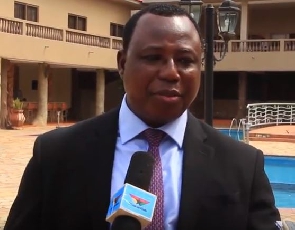The Commission on Human Rights and Administrative Justice (CHRAJ), has underscored the need for Government to do more in upholding the rights of older persons as enshrined in the National Ageing Policy (NAP), the 1992 Constitution and other international instruments.
The Commission said though Ghana had over the years made progress in advancing the rights of older persons and recognising the important role they played, more needed to be done to draw attention to their plights and wellbeing.
Mr Joseph Whittal, the Commissioner, said this in a statement issued in Accra to commemorate the 2020 global celebration of the International Day of Older Persons.
The Day, which marks the 30th-anniversary celebrations, is on the theme; “Pandemics: Do They Change How We Address Age and Ageing,” and aimed at promoting the human rights of all persons in Ghana, especially older persons.
The theme, further highlighted the role of the healthcare workforce to the wellbeing of older persons, with special recognition to the nursing profession.
“This is consistent with goal 3 of the 2030 Agenda for Sustainable Development, which seeks to ‘ensure healthy lives and promote wellbeing for all ages;’ particularly target 3.8, achieving universal health coverage.”
“This includes financial risk protection, access to quality essential healthcare services and access to safe effective quality and affordable essential medicines and vaccines for all,” the statement said.
It said the composition of the world population had changed drastically over the years. Between 1950 2010, life expectancy rose from 46 to 68 worldwide.
In 2019, there were 703 million persons aged 65 and over globally.
According to the Madrid International Plan of Action (MIPA), the number of older persons globally was projected to reach two billion between 2019 and 2050.
Ghana is a signatory to several international instruments and conventions that seek to protect the rights of older persons, such as the 2002 African Union Policy Framework and Plan of Action on Ageing; the 2002 second World Assembly on Ageing and MIPA on Ageing and the 1982 UN Plan of Action on Ageing, it said.
It stated that more importantly, the supreme law of Ghana, the Constitution, enjoined the State to enact appropriate legislation to ensure the protection and promotion of all other basic human rights and freedoms, including the aged; and to improve social assistance to the aged, to enable them to maintain a decent standard of living.
The statement said 10 years after the NAP, the State was yet to ensure that the healthcare needs of older persons were comprehensively addressed by the National Insurance Scheme (NHIS). “For instance, physiotherapy management of Parkinson’s disease and dementia, which are more prevalent among older persons who are above 60 years and most medications for such conditions are not included in the in the NHIS drug policy.”
“As we commemorate this day, CHRAJ wishes to raise awareness on the special health needs of older persons and of the contributions to their health and to the functioning of the societies in which they live,” it stated.
It also called for the need to increase awareness and show appreciation to the role of the health care workforce in maintaining and improving the health of older persons with special attention to the nursing profession.
The statement said that would also increase understanding of the impact of COVID-19 on older persons, which called for deliberate healthcare policy and service delivery interventions to minimize the effects of the pandemic on older persons and the future.
The Commission also called on Government to speed up processes of completing the ongoing stakeholders consultations on the National Ageing Bill laid before Parliament. The United Nations (UN) on December 14, 1990, designated October 1st as the International Day of Older Persons per the UN Resolution 46/9.
In 2002, the UN General Assembly adopted the Madrid International Plan of Action on Ageing to respond to the opportunities and challenges of the aging population in the 21st century.
One of the central themes of the MIPA is to ensure the full enjoyment of basic human rights of all persons and the elimination of all forms of discrimination and violence against older persons.
General News of Friday, 2 October 2020
Source: GNA













